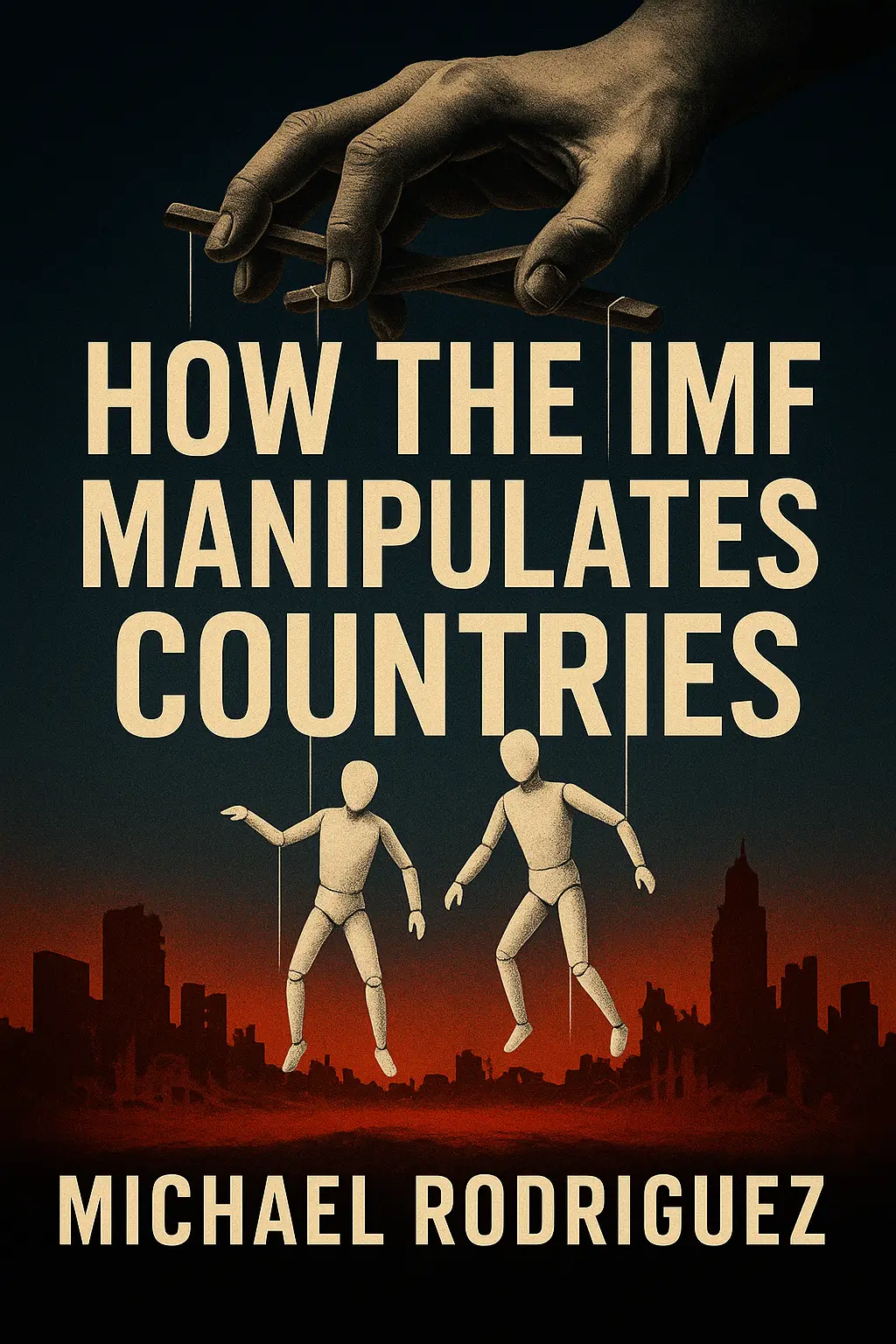How the IMF Manipulates Countries?
The Invisible Hand of the Market

By Michael Rodriguez
About the Book
The International Monetary Fund (IMF) presents itself as a global financial safety net, but does it truly rescue struggling economies or ensnare them in perpetual debt? In this groundbreaking investigation, economic analyst Michael Rodriguez exposes the hidden mechanisms through which the IMF exerts control over sovereign nations.
“How the IMF Manipulates Countries” takes you behind the scenes of the world’s most powerful financial institution, revealing how its policies have consistently prioritized creditor interests over debtor nations’ economic recovery. From Argentina’s catastrophic default to the East Asian financial crisis, from post-Soviet Russia to modern Ukraine, this meticulously researched analysis demonstrates how IMF “assistance” often leads to privatization of national assets, dismantling of social safety nets, and entrenchment of foreign economic control.
Drawing on decades of economic data, internal documents, and firsthand accounts, Rodriguez traces the IMF’s evolution from its Bretton Woods origins to its current role as an instrument of global financial governance dominated by Western powers. As nations explore alternatives like the BRICS New Development Bank and China’s bilateral lending, this timely exposé asks a crucial question: is the IMF’s debt-based model a path to development or a sophisticated system of economic colonization?
What You’ll Discover
- The shocking history of how the IMF has repeatedly prioritized Western financial interests over the needs of struggling nations
- How IMF “conditionality” requirements force countries to implement policies that often worsen economic crises
- The notorious “Washington Consensus” blueprint used to restructure economies for the benefit of multinational corporations
- The scandalous case of Russia’s 1998 IMF loan that disappeared into offshore accounts
- How China and BRICS countries are creating alternative financing models challenging IMF dominance
- The rising influence of digital currencies (CBDCs) as tools for unprecedented financial surveillance and control
- Alternative development paths that have allowed countries to escape the IMF debt trap
Key Insights
- The IMF’s voting structure gives the United States effective veto power over key decisions, allowing it to shape global financial policy
- IMF loans are often structured to ensure countries remain in perpetual debt cycles, paying interest while never addressing structural problems
- The fund’s structural adjustment programs typically require privatization of national assets, often sold to foreign investors at bargain prices
- Countries that have broken with IMF orthodoxy, like Malaysia during the Asian crisis, have often recovered faster than those following fund prescriptions
- China’s Belt and Road Initiative now provides an alternative funding source that, despite its own problems, challenges IMF hegemony
- The IMF’s role in promoting Central Bank Digital Currencies raises serious concerns about financial surveillance and control
About the Author
Michael Rodriguez is a renowned economic analyst and investigative journalist specializing in global financial systems and institutional power. With over fifteen years of experience researching the hidden mechanisms behind international monetary networks, Rodriguez brings a unique perspective to understanding how financial institutions shape world events and national economies.
His previous works include “The BlackRock Empire,” “George Soros: The Man the World Hates,” “The PayPal Mafia,” “Silver Empire,” “The Chinese Real Estate Bubble,” “Weaponized Economy,” and “The Trillion Dollar Shadow.”
Share This Book
Available Now
| Get the Book - Universal Book Link | Apple Books |
First edition: May 2025
Published by Resource Economics Press
New York • London • Singapore
ISBN: 9798231531981 (Hardcover)
ISBN: 9798231388486 (eBook)
Uncover the Hidden Economics of Power
Stay Ahead of Global Financial Manipulation
Join thousands of readers who receive exclusive analysis on international finance, debt traps, and the hidden mechanisms controlling the global economy. Get insights that mainstream media won't share.